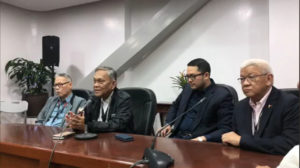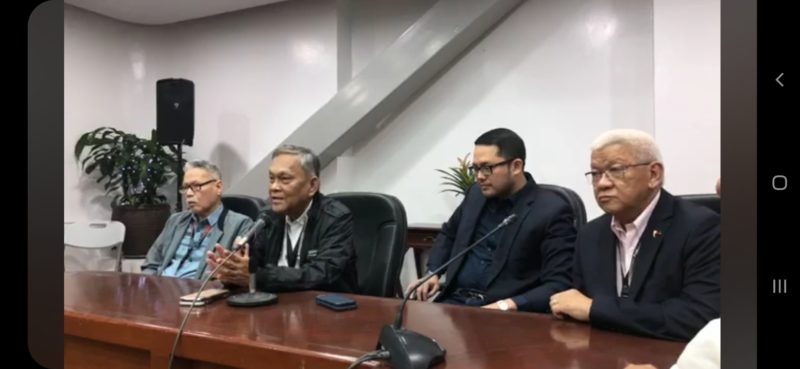
The Civil Aviation Authority of the Philippines (CAAP) and Manila International Airport Authority (MIAA) are deferring payment of take-off, landing, and parking fees by local airlines to cushion the impact of the coronavirus disease (COVID-19) on the aviation industry.
In a press briefing on March 9, both MIAA and CAAP stressed the decision was made to extend help to airlines amid the decrease in passenger numbers and flights due to the COVID-19 outbreak.
READ: PH transport, supply chain industries reel from coronavirus impact
CAAP director general Jim Sydiongco said, “we have considered deferring payment on parking and landing while there is a threat of COVID-19.”
Local airlines operating under MIAA and CAAP are covered by the order.
MIAA general manager Ed Monreal said the deferred charges for local carriers would total about P58 million a month. Local airlines operating under CAAP will save P37 million a month in deferred take-off, landing, and parking fees. The airlines will pay the deferred charges once the COVID-19 threat in the country is lifted.
“We’re seeing about P58 million a month in terms of expenses that will cover take-off, landing, parking (at) NAIA [Ninoy Aquino International Airport]. Deferred payment lang po muna ang i-e-extend natin. Hangga’t nandyan po ang COVID-19 ipapatupad po natin ‘yan (We’ll extend deferred payment first; we will implement that until the virus is still there.),” Monreal said.
Asked about the length of deferment, Sydiongco said depending on airlines’ recovery “we’re talking about over a year of deferment and over a year of payment.”
Aside from deferment of fees, the aviation and airport sectors are also encouraging airlines to help boost local tourism.
Civil Aeronautics Board executive director Carmelo Arcilla said his office will encourage airlines to service local destinations to promote local tourism and “at least cut the losses of the airlines.”
Meanwhile, Monreal assured airline passengers that NAIA is being sanitized and disinfected round the clock.
There are cleaners every 30 minutes and thermal scanners have been added at the domestic airports.
This was echoed by DOTr Undersecretary for Legal Affairs Atty. Reinier Paul Yebra, who said the DOTr has taken a holistic approach in disinfecting all transportation hubs in the country.
In the maritime sector, the Philippine Ports Authority (PPA) directed ports under its jurisdiction to closely coordinate with their respective quarantine offices and strictly implement passenger screening at arrival areas.
PPA general manager Jay Daniel Santiago said stringent security measures have been in place especially in areas frequently visited by tourists. Face masks and sanitizers are also being distributed to frontline employees.
The Philippine Coast Guard advised all medical units in its 13 Coast Guard Districts to be on high alert to block the possible spread of COVID-19.
For the road sector, the Land Transportation Franchising and Regulatory Board, through Memorandum Circular 2020-005, mandated all public utility vehicle drivers and conductors to wear face masks at all times while on duty, and for all franchise holders to ensure compliance.
All terminals have been ensuring proper sanitation and cleanliness in their premises, and have been providing face masks as well as disinfectants or sanitizers to their passengers.
The railways sector has instructed its station and security frontline personnel to wear face masks, and ensure that hand sanitizers and soaps are available in restrooms as well as in other strategic areas inside stations.
Train interiors and station premises frequently touched by commuters are being disinfected regularly.
Periodic announcements and reminders on preventive actions that could help prevent transmission of the virus are being projected at strategic locations.
President Rodrigo Duterte declared a State of Public Health Emergency on March 8, 2020 after the Department of Health confirmed a 10th COVID-19 case in the Philippines.
Under the declaration, all government agencies and local government units are enjoined to render full assistance and cooperation in mobilizing the necessary resources to contain the COVID-19 threat.





